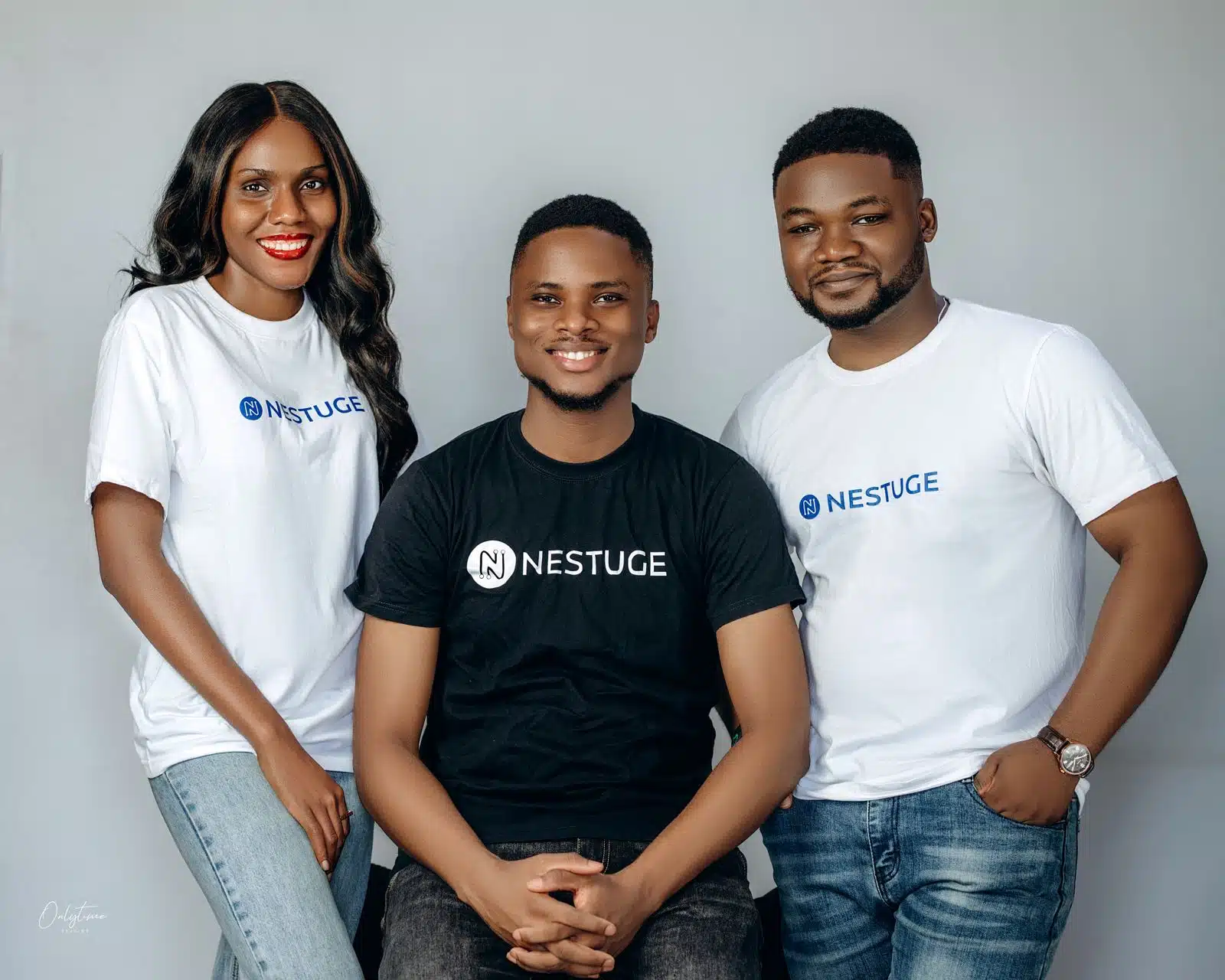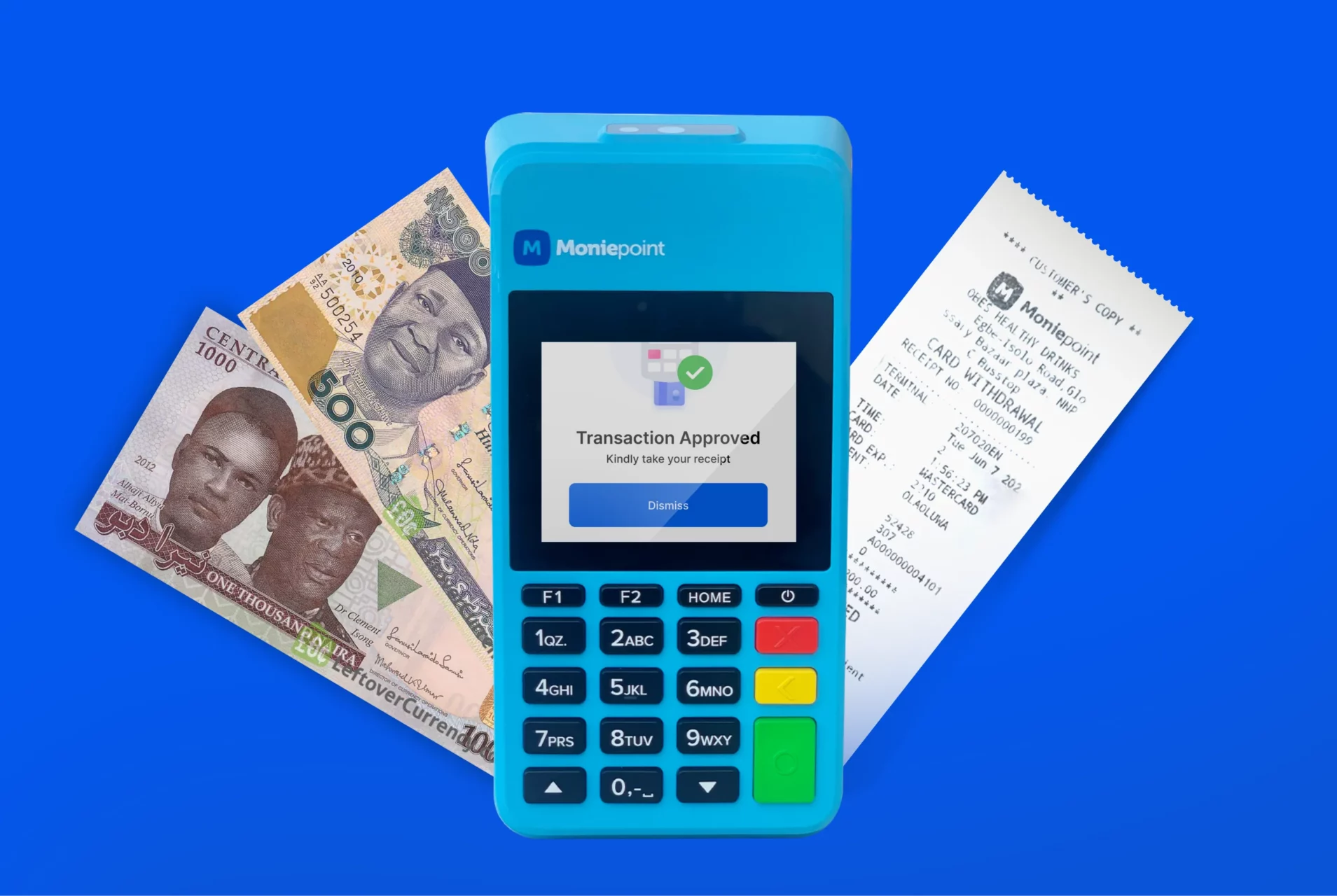While most Nigerians jump at the opportunity to leave the country — or japa, as it’s popularly called — Nelson Eze, Co-founder and CEO of Nestuge, made the reverse journey, returning to Nigeria to build a startup.
Eze conceived the idea for Nestuge after a frustrating attempt to pay for an online class in 2021. Recalling the process, he told Techpoint Africa how he had to transfer money to a bank account, send proof of payment to the creator, and even screenshot the creator’s WhatsApp status to access the account number.
He decided to build the startup alongside Ruth Okoli and Jude Enete.
“It’s a monetisation tool for digital creators, experts, and coaches,” Eze said. “It helps them earn money from their audience.”
Eze understood that while social media helped creators build an audience, they are not designed for monetisation, especially in Nigeria. For instance, someone who has built a large following by posting personal finance tips on X would struggle to monetise that audience within the app itself.
Rather than replace social media platforms, Nestuge integrates with those creators use and offers them tools to monetise their existing communities and provide extra value for their audiences.
How Nestuge works
Before creators can begin using Nestuge, they must register and complete KYC protocols. Once verified, they can start creating products, or “nests,” as they’re called on the platform.
But Nestuge isn’t just a marketplace for courses, masterclasses, or paid communities.
“You can connect tools that you already use,” Eze explained. “Telegram, Zoom, even Google Meet.”

Victoria Fakiya – Senior Writer
Techpoint Digest
Make your startup impossible to overlook
Discover the proven system to pitch your startup to the media, and finally get noticed.
Nestuge helps creators deliver a bespoke user experience. They can send custom emails to new members who pay to join WhatsApp groups or automate follow-ups for customers who purchase a course or an ebook.
These automation features were added in response to user feedback.
“When we first started, we were focused only on memberships,” Eze said. “But we realised that people also had ebooks, courses, and consulting services, and it made sense to do everything on one platform.”
Although Eze conceived the idea in 2021, development didn’t begin until he returned to Nigeria in 2022. Nestuge officially launched in 2023 and currently has over 7,000 creators.
With a team of just five — three co-founders and two employees — reaching this scale wasn’t easy. In their first year, the product saw little traction. It took multiple iterations and a constant loop of feedback to build what users really needed.
At one point, they experimented with in-app purchases, but creators were losing 30% of their revenue on Apple devices.
“We had to abandon that and go entirely to the web,” Eze said, “and we came up with a solution that integrates with what people are already using, rather than building a stand-alone platform.”
The marketing strategy
With no external funding — apart from contributions from friends and family — and a lean five-person team, Nestuge had to be creative with marketing.
Eze described their strategy as manual, personal, and community-led. In the early days, there were no ads or launch campaigns. Instead, he reached out to creators running monetised WhatsApp and Telegram groups. He sent cold DMs, introduced the product, and helped them set up their first payment flows.
“It was just me doing the onboarding for the first few hundred users,” he said.
This high-touch approach not only built trust but also led to the product insights that shaped Nestuge’s growth.
As creators started seeing results — automated access, time saved, and money earned — they shared the tool with others. Nestuge grew organically through word-of-mouth referrals, especially in close-knit creator communities where good tools spread quickly.
Ironically, a more aggressive marketing strategy almost backfired. The team launched an affiliate programme, which led to over 30,000 sign-ups, but many of those users weren’t part of the target market.
“When we said creators, people assumed we meant content creators,” Eze said. “But we wanted creators who had something to offer.”
It was the serious, high-quality creators who not only brought value to the platform but also helped the team refine it. So far, Nestuge has paid out over ₦500 million ($326,000) to its 7,000+ active creators.
This growth came at a cost. With such a small team — and co-founders still holding day jobs to fund the business — Eze admitted the workload was intense, particularly around customer support.
“By mid-2024, we started getting a lot of customers, and we wanted to pride ourselves on being responsive,” he said. “This meant resolving issues in record time. Enforcing that level of service really stretched the team.”
Currently, Nestuge keeps operating costs low. The co-founders make up 60% of the team, and the company is now focused on attracting quality customers through targeted onboarding and education.
While fundraising hasn’t been a priority, it’s not off the table. “We need to raise to bring in the best talent,” Eze said.
Still, he’s cautious about taking on too much capital.
“We don’t want to raise the kind of money that makes us too comfortable,” he added. “Our aim is to satisfy users and build a great business from it.”
Business model and competitors
Nestuge earns revenue through transaction commissions and usage-based automation fees. For every sale made, whether it’s a course, consultation, or access to a private group, the platform takes a 3.9% cut on local payments and 7.5% on international ones. This ties Nestuge’s earnings directly to how well its creators perform, making the model incentive-aligned.
The second stream comes from its automation features, such as Google Calendar syncing, Drive-based content delivery, email reminders, and WhatsApp/Telegram access control.
Instead of a flat subscription, users are charged based on how often they use these tools and the volume of resources consumed. This pay-as-you-go model keeps the platform accessible for small creators while still scaling with larger users. Overall, it’s a lean, performance-based pricing system built for the realities of the African digital economy.
While Nestuge has seen good growth, it is up against big players like Selar, another bootstrapped startup, which paid out ₦9.8 billion ($6.3 million) to creators last year, over 20 times what Nestuge has done since inception.
Eze isn’t worried. To him, the creator economy is growing and would soon be too much for only Selar to take on.









